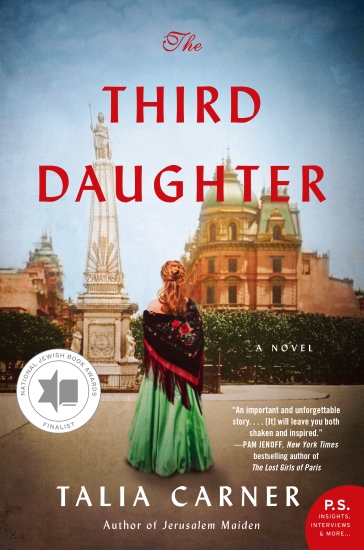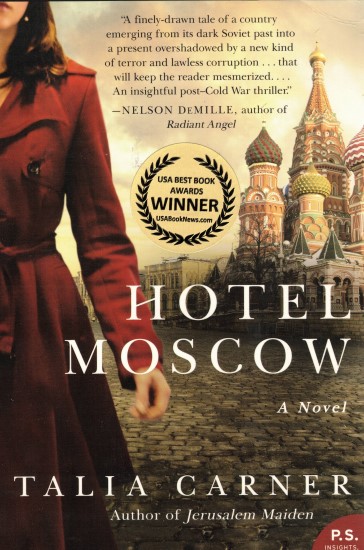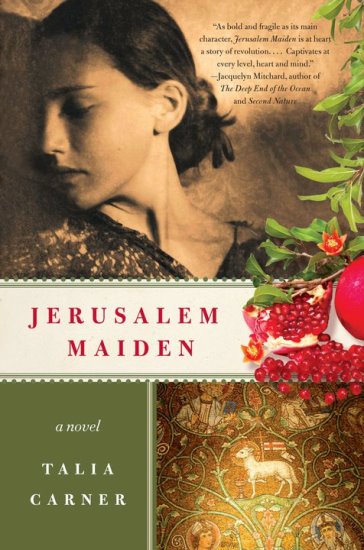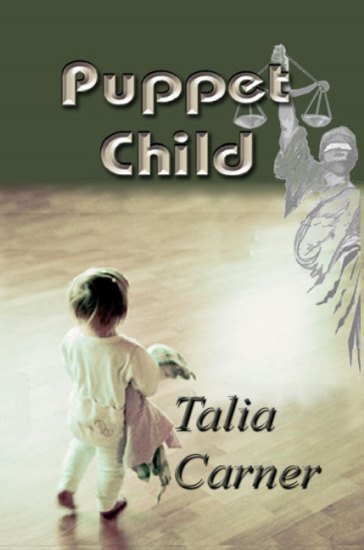Jerusalem
September 1911 / Tishrei 5672
Esther’s hand raced over the paper as if the colored pencils might be snatched from her, the quivering inside her wild, foreign, thrilling. All this time she hadn’t known that “blue” was actually seven distinct shades, each with its own name—azure, Prussian, cobalt, cerulean, sapphire, indigo, lapis. She pressed the waxy pencils on the paper, amazed by the emerging hues: the ornaments curving on the Armenian vase were lapis; the purplish contours of the Jerusalem mountains were shrouded by indigo evening clouds. In this stolen hour at Mademoiselle Thibaux’s dining-room table, she could draw without being scolded for committing the sin of idleness, God forbid.
A pale gecko popped up on the chiseled stone of the windowsill and scanned the room with staccato movements until it met Esther’s gaze. Her fingers moving in a frenzy, she drew the gecko’s raised body, its tilted head, its dark orbs focused on her. She studied the translucency of the skin of the valiant creature that kept kitchens free of roaches. How did God paint their fragility? She picked up a pink-gray pencil and traced the fine scales. They lay flat on the page, colorless. She tried the lightest brown—
Her hand froze. What was she thinking? A gecko was an idol, the kind pagans worshipped. God knew, at every second, what every Jew was doing for His name. He observed her now, making this graven image, explicitly forbidden by the Second Commandment, Thou shalt not make unto thee any graven image, or any likeness of anything that is in heaven above, or that is in the earth beneath, or that is in the water under the earth.
With a jerk of its head, the gecko darted away. Esther stared at the paper, her hand in midair. She had never imagined a sin like this.
Mlle. Thibaux walked in from the kitchen nook, smiling. Her skin was smooth, luminous, and her brown hair uncovered, its coquettish ripples pinned by twin tortoiseshell combs. She picked up Esther’s drawing and examined it. “C’est merveilleux! Quel talent!”
Esther blushed. The praise reflected what Mlle. Thibaux’s raised eyebrows had revealed that morning in sixth-grade French class when she had caught Esther doodling. To Esther’s consternation, her teacher must have detected the insects hidden inside the branches and leaves. The teacher turned the page this way and that, and her eyes widened. She then asked Esther to stay after school, and Esther was certain she would be ordered to conjugate the verb “to be” hundreds of times on the blackboard: je suis, tu est, il est, elle est— Instead, Mlle. Thibaux invited her to her apartment at the Hospice Saint Vincent de Paul, a palace-like building with arch-fronted wings, carved colonnaded verandas and balustraded stairwells. The teacher was a shiksa, a gentile. Newly arrived from Paris, she probably didn’t know that while it wasn’t forbidden in Esther’s ultra-Orthodox community to decorate with flourished letters and ornamental shapes, drawing God’s creatures was another matter.
Now, holding Esther’s drawing, Mlle. Thibaux smiled. “Here, try mixing these two colors.” On a separate page, she sketched a few irregular lines with a pink pencil, then scattered some short leaf-green lines in between.
Esther chewed the end of her braid. Fear of God had been instilled in her with her mother’s milk and in the Ten Commandments tablets displayed everywhere, from her classroom to the bakery. In addition, the Torah pronounced that any urge must be suppressed, as it would surely lead to sinning. The quickening traveling through Esther again proved that what she was doing was forbidden. Her mother said that Esther’s harshest punishment for sinning would be failure to become betrothed at twelve, as every good Jerusalem maiden should upon entering her mitzvah age. Yet, as Mlle. Thibaux handed her the pink and green pencils, Esther silently prayed for God’s forgiveness and recreated the hues inside the gecko’s scales. To her astonishment, they blended as a translucent skin.
A knock sent Mlle. Thibaux to the door, her back erect and proud as no woman Esther had ever known. The teacher accepted a pail from the water hauler and carried it to the kitchen while Esther collected the pencils into their tin box.
Outside the window, slicing off the top of the Tower of David, a cobalt-blue sky hung low on the horizon like a wedding chupah with a ribbon of magenta underlining it. A flock of sparrows jostled for footing in the date palm tree, then rose in a triangular lace shawl formation before settling again. The warm smell of caramelized sugar wafting from the kitchen made Esther hungry for tonight’s dinner, a leftover Shabbat challah dipped in milk and egg, fried, and then sprinkled with sugar. Closing the pencil box, her hand traced its scene of a boulevard in Paris, lined with outdoor cafés and their dainty, white, wrought-iron chairs. Women wearing elegant hats and carrying parasols looped their arms through men’s holding walking sticks, and the open immodesty of the gesture shocked Esther even as it made something inside her tingle. In Jerusalem, only Arab men, dressed in their striped pajamas, idled on low stools in the souk and played backgammon from sunrise to sunset. Their eyes glazed over as they sucked the mouthpieces of hoses coiled around boiling tobacco narghiles. Paris. Esther had never known a girl who traveled, but when she had been little, her father, her Aba, apprenticed at a bank in America. It was a disastrous exposure to “others,” her mother, her Ima, said, because it filled his head with reprehensible new ideas, worse than the simpleton Hassids’. That was why Aba sent his daughters to a school so elegant that Yiddish was frowned upon. Most subjects were taught in English, and Esther mingled there with Sepharadi Jewish girls who spoke Ladino and Arabic as well as with secular girls—heretic Zionists all of them, Ima said—who spoke the sacred Hebrew.
“Chérie, will you light the candles?” Mlle. Thibaux walked in from the kitchen nook and placed a silver tea set on a spindle table covered with a crocheted napkin. The high collar of her blouse was stiff over starched pleats running down the front to a cinched waist, but when she moved, her long skirt immodestly hinted at legs. Had she ever walked in Paris with a man, daring to loop her arm in his?
Mlle. Thibaux smiled. “It’s four o’clock—”
Four o’clock? Esther’s hand rose to her throat. Ima, who expected her to attend to her many chores right after classes, had been laboring alone while Esther was indolent. Ima would be furious. “I must go home—”
Mlle. Thibaux pointed to a plate with slices of glazed cake sprinkled with shaved almond and cinnamon. “It’s kosher.”
“No, merci. The neighborhood gates will get locked for the night.” Saliva filling Esther’s mouth, she gathered her long plaid skirt and backed toward the door. She had never tasted a French cake; it had been ages since she had eaten any cake. But Mlle. Thibaux’s kitchen was traife, non-kosher. Esther wouldn’t add another sin to her list. “Merci beaucoup!”
She ran out of the apartment, down the two flights of steps, and across the stone-paved yard to the street facing the Jaffa Gate in the Old City wall, where camels awaited pilgrims and Turkish soldiers patrolled. Restless birds chirped in desperation to find shelter for the night. Wind rustled the tops of the tall cypresses and whipped fall leaves into a spin. Maybe it would rain soon, finally replenishing the dry cistern under her house.
Running downhill, she turned north, her sandals pounding the cobblestones. At least she wasn’t barefoot as she had been that morning, putting her sandals on at the gate to Evelina de Rothschild school to save the soles. She vaulted over foot-wide sewage channels dug in the center of the alleys. Then there was the open hill with only rocks and scattered dry bushes flanking the dirt path grooved by men, carts and beasts. Climbing fast up the path, she listened for sounds beyond the trilling of crickets and the buzzing of mosquitoes. In the descending darkness, a Jewish girl might be dishonored by a Turkish soldier or murdered by an Arab. Just on the next hill, the grandfather she had never met had been assassinated while inspecting land he purchased for the first Jewish neighborhood outside the Old City.
A scruffy black dog stood on a rock. Esther’s heart leaped. Dogs were despicable creatures; they carried diseases that made people insane. It growled and exposed yellow-gray teeth. When Esther swerved out of the path, it gave chase. She screamed, running faster, the dog barking behind her. She grabbed the hem of her skirt, and her feet pounded on rocks, twisting, stumbling. If she tripped, she’d die. Now that the Ottoman Empire was crumbling and the sultan neglected his subjects, hungry Jerusalemites ate even rotting scraps of food, and starving dogs bit people. The Turkish policemen killed dogs on sight.
Was that the dog’s breath on her heels? She gulped air. Her wet cheeks were cold in the rush of wind. A blister burned the sole of her foot. The dog must smell her sweat, her fear. She couldn’t outrun it. Her punishment for drawing idols had come so soon! It had never occurred to her that there could be a fate worse than Ima’s warning about failing to find a groom. To Esther, that threat had always sounded like a blessing.
Cold pain sliced her rib cage, and her lungs burned. She could run no more. She stopped. Whirling, she faced the dog, exposed her teeth and snarled, waving her arms like the mad girl she’d become if it bit her.
To her amazement, the beast halted. Another snarl rose from Esther’s chest, tearing her throat, and the animal backed off. She flailed her arms again, and the dog tucked its tail and slunk away.
Her heart still struggling to escape its confinement, Esther whispered a prayer of thanks and then fumbled for the amulet in her pocket to stave off the evil eye. Her pulse drummed in her ears. She broke into a trot. Five more minutes to Me’ah She’arim. Her inner thighs chafed over her belted socks, but stopping wasn’t an option. Wicked winds—worse than dogs—gusted in search of a soul deserving punishment, one that had defied God.
Panting, Esther was about to enter the tiny kitchen yard of her home, when she was startled by a movement in the shadow. Lilith the ghost? It was a common knowledge that she stalked the night. Or what if these were the robbers Ima fretted about? Or Turkish soldiers raiding the Jewish streets to kidnap boys for lifelong military service, as Aba feared? Esther held her breath as if she could become invisible, then jumped at the screech from the rusty neighborhood iron gate swinging shut.
A figure stepped into the patch of yard washed by the last light of dusk: her friend Ruthi.
“You scared me,” Esther said in Yiddish, grabbing Ruthi’s hand. “What happened?” She scanned the large rectangle of communal space created by rows of identical one- and two-room houses clinging together like a frightened herd of goats. Their back walls bordered the thoroughfare to form an impenetrable blockade. In the center, the oven, the well, the laundry shed and the outhouses were all dark and silent, as were the yeshiva and the mikveh. Only the synagogue’s windows shone, where the silhouettes of praying men would sway until the wee hours as they mourned the destruction of the Temple nineteen hundred years earlier. “Did someone die?” Esther asked. After the recent Day of Atonement, God might have struck a wicked man—or even a seemingly virtuous nursing mother.
“Did you take a ride in Elijah’s chariot?” Ruthi asked. A smile broke on her face and she gushed on. “Guess what? I am going to be betrothed! Blessed be He.”
“And I’m the rabbi marrying you,” Esther said in a ponderous tone and stroked an imaginary beard. She and Ruthi had made a pact to refuse marriage until they finished school. She wanted to report about her afternoon at Mlle. Thibaux’s, but right now she had to get in the house. Resuming her own voice, Esther motioned toward her kitchen yard. “Come in. I have work to do—”
“Well?” Ruthi asked.
“Well what? I’ll beat you at hopscotch tomorrow.” They kept a running tally, and that morning Ruthi had taken first place.
“I can’t play. Not now that I’m an adult.”
The rising moon illuminated the delicate line of Ruthi’s thin nose and heart-shaped mouth. If she had Mlle. Thibaux’s colored pencils now, Esther thought, she would highlight Ruthi’s clear skin with lavender—
“Nu? Well?” Ruthi demanded.
The fact suddenly penetrated Esther’s head with the sounds of the neighbors’ clattering pots and pans, cries of babies, scratching of furniture being dragged to make room for cots, and the angry thumping of Ima’s wooden clogs on the chiseled kitchen floor. “But, but—Miss Landau said we shouldn’t get married before fourteen, or even sixteen—and you agreed—”
“That’s ridiculous. Name one religious girl in school who’s waited that long.”
“I will,” Esther said, even though Aba often explained that marriage was the Haredi community’s building block, especially in Jerusalem, the holiest of all cities, where a maiden carried the promise of perpetuity for all Jews in the entire universe.
“My groom is a biblical scholar,” Ruthi said.
“All these yeshiva boochers are afflicted with hemorrhoids from sitting on hard benches all day and all night.”
“I’m serious,” Ruthi said. “Marriage will make me important.”
The amulet in Esther’s pocket felt cold. “You’ll work your fingers to the bone from dawn to midnight, you and the children starving, barefoot, and living off charity, while he studies—”
Ruthi’s eyes widened in shock. “It will hasten the Messiah’s arrival.”
Esther knew that her utterings were Zionist blasphemy, but the subject of betrothal had never hit this close before. “Do you want to be responsible for the future of all Jews?” she whispered.
Ruthi stamped her foot. “Just say mazal tov.”
A mosquito buzzed near Esther’s head. “Who’s your groom?”
“Yossel.” Ruthi’s tone turned dreamy. “I hear he’s handsome.”
Yossel? Esther remembered a short boy with buckteeth. Ruthi was tall, as gentle as a reed by the Jordan River. Esther sometimes made her balance a jug on her head so she would move as gracefully as Rachel had when Jacob spotted her at the well.
“Well? A thief stole your tongue?” Ruthi’s hands rested on her hips.
From the kitchen yard, a few meters away, came the snapping sound of sheets shaken off the line. Esther’s sister, Hanna, a year younger than she, was taking over her neglected task before the night mist would dampen them. “His Ima owns a Judaica shop,” Esther said, and shifted her weight from one foot to the other. “Once, they came to see my Aba about money American relatives sent them.”
“Nu?” Ruthi said.
“His teeth are like a shelf. You can dry garlic cloves on them—”
Ruthi leaned into Esther’s face. “Jealousy is a sin! How can you speak such awful lies to me?”
On top of the bookcase in the school library, Esther had found a forbidden book of Chekhov’s stories, permitted only to the secular students. The knowledge that in Russia, male and female cousins played together, that men and women talked, had fired her imagination. Men and women even “loved”—they walked with their arms touching, as she now knew they also did in Paris.
“Let’s stroll on Shabbat between the Armenian monastery and Zion Gate,” Esther said. “Yossel might be there also, wanting to take a peek—”
“It’s forbidden!”
“Other betrothed couples sneak one little ankuken—”
“—and ruin the brides’ reputations. Only grooms might sneak a peek.”
“You must see him.” Hopefully, the repulsive boy wasn’t Yossel, but rather one of his brothers. Esther’s tone heated. “Maybe even talk to him.”
Ruthi sniffed with the air of someone chosen for a great destiny. “That’s breaking the tzni’ut decree. Immodest and unbefitting a virgin.”
Ima’s voice cut the air. “The night is as black as the Egyptian plague. Esther Kaminsky, is that you?”
“I’m coming!” Esther gathered her skirt and ran inside.
“Who were you talking to?” Ima asked. “A ghost? And where have you been? Who’s to do all your work around here? You want to kill me?”
“Sorry. I’ll do all the mending tonight—” Esther was about to say that the French teacher had been tutoring her, but halted. The sin of lying was almost as bad as the sin she was covering up.
“A day that passes without a misfortune is a miracle in heaven.” Ima batted down Esther’s flyaway hair. Her body odor, of wine gone sour, mingled with the fumes of fried garlic and onion and the boiling compote of apricots, dates and figs. “Who will marry a wild girl who runs around in the streets? Go take care of the little ones. Make yourself useful until your wedding day.”
Esther groaned.
“What am I asking of you? To build the pyramids?” Ima muttered.
Esther stepped to the front room, where at the far end of the table her two older brothers bent over their holy books. Behind them, the mahogany rolltop desk that served as Aba’s bank was locked for the evening. In the cast of the six-armed kerosene lamp on the table, Esther’s three youngest siblings played on the floor, and she thought of the shadows she would want to paint in gray and green and highlight the light reflecting from four-year-old Gershon’s reddish hair. Except that Ruthi’s betrothal rang as a warning bell: a prelude to her own. Both of them were destined to follow God’s path for Jerusalem maidens. Every week, the matchmaker spied by the lines behind the communal laundry shed, where the women hung their washed rags used for their monthly flow, for a sign that Esther was ready.
“Are you idling again? Go do the ironing.” Ima stepped out from the kitchen. “Hashem, why did You curse me with such a lazy daughter?”
“Not lazy.” Gershon tugged on Ima’s apron. “Esther is good.”
Ima’s water-soaked finger curled his reddish sidelocks. “We have a rabbi in the family!”
“Let’s play pharaoh’s daughter,” Esther told him, and assumed an Egyptian pose, with her elbows raised sideways, her head held rigidly to the right, and her wrists angled out. The toes of both feet facing right, she walked sideways, Gershon and her six- and eight-year-old sister and brother imitated her, giggling, as they circled the dining table. Esther’s two older brothers stuck their fingers in their ears, not to be distracted from heavenly studies by earthly joys, and their lips moved with their reading. Prancing by the sofa, Esther grabbed Ima’s silk shawl, the one worn on special occasions—indoors only so as not to defile modesty with vanity—and tied it around her chest, letting its tassels drag on the floor. “I’m the princess of Egypt,” she chanted, circling the dining table. “Hanna, you’re Moses’ sister, who defies the mighty pharaoh to save her baby brother from death.” Without halting her Egyptian-style strut, she grabbed Ima and continued her chant, “You’re Moses’ mother floating his basket on the Nile, saving the Jews for eternity.”
Blush flooded Ima’s cheeks. “What am I, a Hassidic woman who dances? And you’re disturbing your brothers’ studies with this racket.” She adjusted her kerchief, and her hand rested on the shoulder of Esther’s oldest brother with tenderness she reserved for this dwarf son. Her other hand stroked Esther’s second brother’s cheek. “Avram, your bar-mitzvah day will be the happiest of my life.”
“Last year you said mine was,” the dwarf Moishe grumbled.
“Don’t you know a mother’s heart? With Hashem’s blessing, each child in turn gives her the happiest day of her life.” Her gaze held Esther’s. “From a daughter, it’s her wedding day.”
Not that wedding talk again. Flinging her braid in defiance, Esther dropped the shawl and grabbed a lantern and her school notebook. She went to the outhouse. The stench assaulted her. Blue-bellied flies flew in and out of the open hole, and thumb-size cockroaches scampered about. In the semidarkness, her feet dancing to keep the cockroaches from climbing up her legs, she used her school pencil to transfer the family scene to paper. She was a defiant daughter to both her mother and God, she knew, but this new urge was stronger than anything she’d ever known. And more than anything now, she wanted to own colored pencils, so she could capture the magic of God’s creations. As she continued to draw, she thought of the grushim her aunts and uncles had given her for Chanukah. She could buy colored pencils. But the only place to find those was the Old City souk, where no Jewish girl was permitted to venture.
When the custodian’s bell rang the end of the day, Esther ran up the hill across from school. The wind made her shiver, but this was only the start of winter; those who got accustomed to the cold early bore it better when it turned brutal. She surveyed the horizon, the undulating hills shimmering in the afternoon sun from the Augusta Victoria pilgrim lodging on the Mount of Olives to Damascus Gate in the Old City wall. In the Old City, adjacent to the Jewish Quarter, branched out the alleys of the Arab souk, a world of “others” filled with temptations unsuitable for the mind of a virgin.
The exhilarating afternoon at Mlle. Thibaux’s table came to Esther’s mind. God’s sanctified kingdom now spread in front of her, every detail so crisp and enthralling, as if an outer eye had been added to the 248 body parts the Bible said she already possessed. Was it possible that God had gifted her with this new vision of His world? Mlle. Thibaux had told her she was talented. Wasn’t talent God’s special gift?
Fifteen minutes later, Esther entered the souk amidst braying goats with ropes tied around their necks, trachoma-blinded beggars extending their open palms, squawking chickens hanging by their feet, and women in Levantine, ground-length dark dresses with rich embroidery who balanced huge baskets on their heads. Esther’s eyes devoured the eclectic merchandise in the small stores spilling onto the sidewalk as the merchants announced their wares at the top of their lungs. Colors and movements and noise and flies and waves of smells both pleasing and foul filled the market. She skipped over animal droppings and wound her way around donkeys laden with sacks of vegetables and handcarts weighed down with earthenware jugs.
In the Byzantine Cardo, the ancient covered bazaar, the crowd was rumbling. Propelled by curiosity, Esther squeezed her way in, moving toward some action at the end of the alley. Soon, though, the river of people pressing forward carried her. She crossed her arms to reduce contact with bodies. The she tried to turn back, to escape. But there were more people now, all larger than she, all closing in on her. The sour odors of men and beasts permeated the air.
Just as panic started to claw in her, she managed to disentangle from the crowd, pushing her way out in front of a store lined with open sacks of colorful, aromatic spices. With no fresh food, fewer flies hovered about. Relieved, Esther climbed on a barrel, and the view in the square just past the Cardo opened up to her.
Two Turkish policemen were flogging a man in a light blue shirt. Each time the end of the braided leather whip cut into his back, the man screamed and a gasp rose from the crowd. “Pity your hearts,” the man cried in Arabic. “Pity your hearts for a destitute man.” Blood streaked his sweat-stained shirt.
Esther covered her mouth in horror. “Poor man.”
“A thief. Better than chopping off his hand for a first offense.” Stepping from the shadows of his store, the spice merchant spoke Arabic. Esther glanced at him, uncertain she understood. The man smiled, revealing tobacco-browned teeth. “Second offense, not so lucky. Two hands.” His fingers made a chopping gesture over his other wrist.
Her expression must have shown her shock, because he chortled. “Third offense, hanging.”
At another collective gasp from the crowd, Esther turned back to the square, peeking through the gaps between her fingers. The dark red stains on the thief’s shirt covered most of the blue. He sprawled on the ground, writhing, and his begging had turned to a monotonous wail.
Esther’s stomach tightened. She swooned.
“Hey, you, girl! Don’t faint in here.” The spice merchant offered her taffy, but she shook her head. The candy had surely been cooked in a traife kitchen.
“This?” He peeled sugarcane, chopped a section, then quartered it. Esther wiped her nose with her sleeve and accepted the stick. As the sweet flavor filled her mouth, the beating in the plaza stopped. The man lay in the dust, motionless except for the occasional jerking of his left leg. Two nuns in habits broke through the crowd and stepped toward the man. Would they carry the criminal to one of their hospitals? Esther wondered. Rumors claimed that miracles happened there, though the Haredi rabbis excommunicated any Jew who accepted Christian charity—
Suddenly, strong arms pulled her backward. She yelped, but a hand clapped her mouth. Choking, she was dragged into the darkness of the store. The aroma of spices thickened the air. “No!” Esther wailed as the spice merchant pushed her against the shelves of fruit cans, knocking her breathless. In the shock of terror, her mind froze with the thought: this was why she was forbidden to come here.
Pinning her to the wall, the man yanked her cardigan open, popping buttons. She screamed. With one quick sweep, he gripped her neck like a vise, reached and lifted her skirt. His large body choked her. His underarm smothered her face. His pungent odor pervaded her head. “You Jewish whore,” he muttered.
Fear exploded in her heart. He was too strong; his damp palms pressed everywhere on her body at once: thigh, hip, chest. She gasped for air. His fingers shoved above her knitted stockings, pinching and bruising her flesh. Esther tried to kick but her legs were pinned by his knees. She found her voice, but her scream, “Ima,” came out muffled against hairy skin.
“You’ve asked for it, little Yahud cunt.” The man’s lips, thick and wet, sucked on her neck like leeches.
Esther bit wildly, sinking her teeth into his arm. He let out a roar, and blood gushed into her mouth. He yanked her braid, nearly breaking her neck, but Esther merely clenched her jaw.
“Your mother’s cunt!” he screamed, trying to shake her off. “You whore!”
She heard a commotion, shuffling of feet, and saw a mass of silhouettes in the open side of the shop. She choked at the pain as hard fingers forced her jaws apart. Her body was hurled onto a sack of ground cumin. The greenish spice flew up in a cloud, assaulting her eyes and nose and burning her lungs. She sneezed and coughed. “Ima—” Her cry was cut off as two men tossed her through the air. She landed in the gutter so hard she could feel the rattling of her bones.
She sensed the crowd gathering, and her fear mounted at their angry voices. “This Jewess has made a mockery of you,” one Arab shouted. “Look how she’s destroyed the store,” said another and kicked her.
At the blow, white pain made her body contract. She would die now, for sure. “Hashem, help me,” she cried.
The spice merchant’s howling went on uninterrupted as more voices spoke. “You’re bleeding like a slaughtered goat.” “We must teach the Yahud a lesson. The infidels.” Then there were too many people and voices and noise to distinguish words.
Soft, foul-smelling garbage damped her face and legs. Pain radiated from all of her limbs, and her eyes were on fire. Blood coated her tongue and the roof of her mouth. She gagged. Her thighs were exposed in the torn skirt, breaking the tzni’ut decree. Something scampered up her arm. A mouse believing her dead! She jerked her hand, but the movement only hurled the creature onto her exposed thigh before it scrambled off. Her skin shrank in disgust. Her stomach heaved, but nothing came up.
Her eyes stung, and she couldn’t open them. She was blinded like Zedekiah, the last king of Jerusalem! She tugged the ripped hem of her skirt to cover her legs. Pushing herself up to her knees, Esther was surprised that her arms obeyed, but another kick sent her down again, and a red-hot pick seared her rib cage. She could barely breathe. “Ima, Aba, Hashem,” she wept. These men would kill her. No one would even know she had been here. “Ima, Aba, Hashem—”






